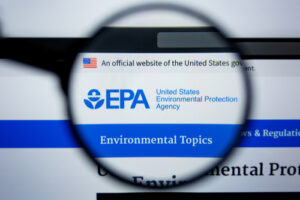
U.S. Reps. Bill Huizenga (R-MI) and John Moolenaar (R-MI) called on the Environmental Protection Agency (EPA) to change course on its recent reclassification of southwest Michigan counties that failed to meet the 2015 ozone National Ambient Air Quality Standards (NAAQS).
Specifically, the EPA reclassified Berrien, parts of Muskegon, and parts of Allegan counties from “marginal” to “moderate” after they were determined to have failed to attain the 2015 ozone NAAQS.
“We ask that you use any and all appropriate authorities to delay and reconsider this decision,” wrote the lawmakers in a March 15 letter sent to EPA Administrator Michael Regan.
The areas now will be subject to stricter Clean Air Act (CAA) requirements with the goal of reaching the ozone NAAQS by Aug. 3, 2024, and will face more burdensome requirements on permitting, as well as implementation of air control technology on certain sources, wrote the lawmakers, who were joined in signing the letter by U.S. Rep. Tim Walberg (R-MI).
“Additionally, new covered projects will need to obtain a higher ratio of pollution offsets,” they wrote, noting that the increased regulation also will have a significant negative impact on the local economy.
The Michigan congressmen also pointed out that the “scope and burden” of the EPA’s regulation are not consistent with the reality on the ground in these southwest Michigan counties.
“The EPA must recognize that given these counties’ locations, meteorological factors likely brought the pollutants into this region from more major industrial centers like Chicago, IL; Gary, IN; and Milwaukee, WI,” they wrote.
Reps. Huizenga, Walberg, and Moolenaar requested that Regan answer several questions regarding how the EPA made its determination, such as whether the EPA studied the economic impact on Allegan, Berrien, and Muskegon counties, if the State of Michigan provided any evidence in support or against the EPA’s findings, and what avenues of legal recourse are available for these communities to challenge the EPA’s determination, among others.
“Southwest Michigan families and businesses have taken sincere steps to improve the quality of their own air and protect the pristineness of the Great Lakes,” the members wrote. “While we understand the need for air quality standards, this decision impacting our communities is not appropriate.”



